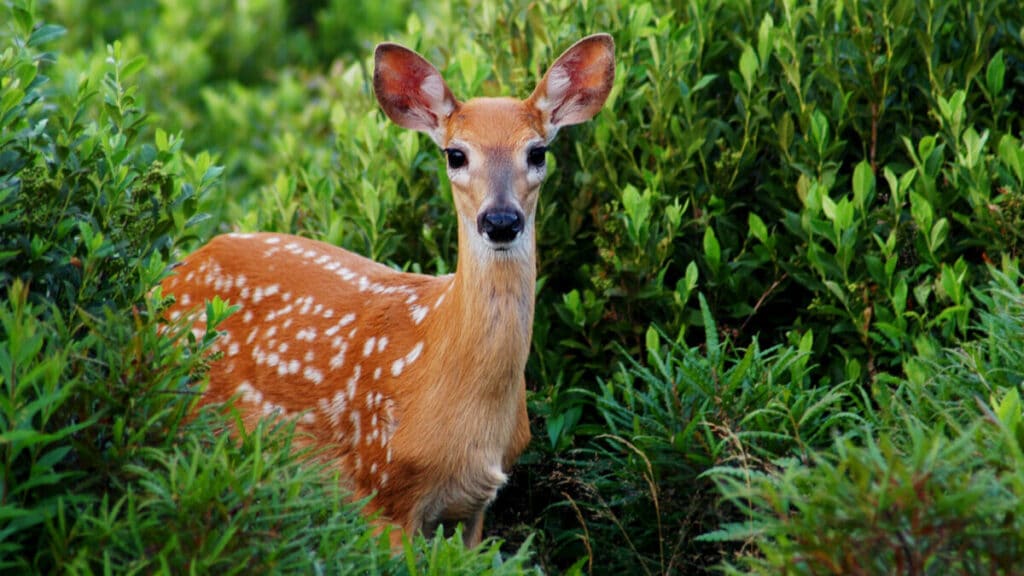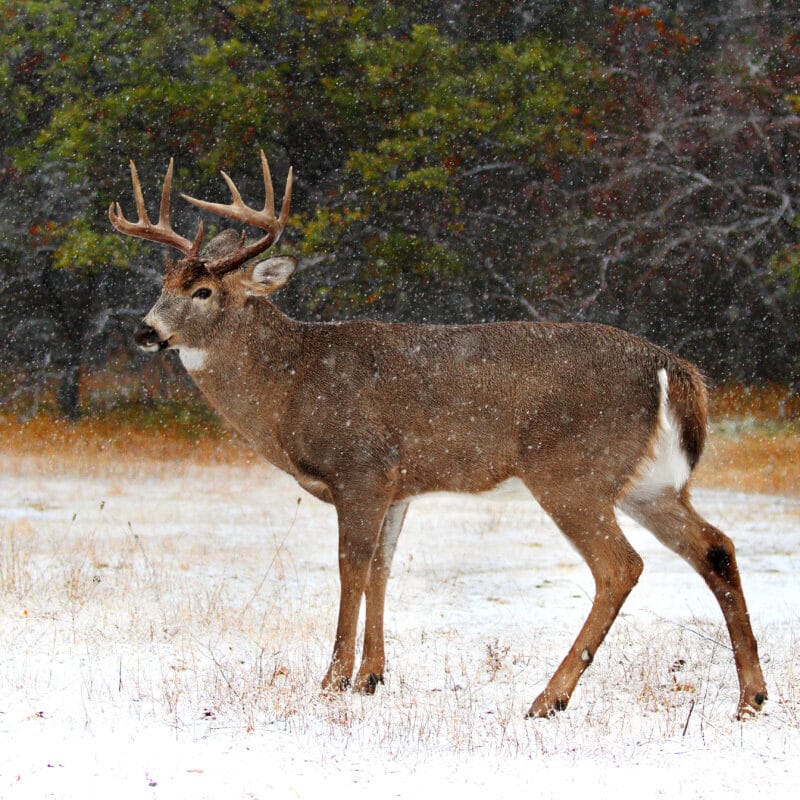Is it Legal to Have a Deer as a Pet? Here’s the Real Answer.

Deer are a common animal that many people will occasionally see roaming around their house, and oftentimes will be seen entering people’s property to enjoy food from gardens. So, many people might think to themselves, “Am I allowed to have a deer as a pet?” and depending on what state you are in the answer may vary.
In the vast majority of states, it is not legal to own a deer as a pet. Because deer are wild and fragile, it is difficult to domesticate them, and attempts to do so often lead to the death of the deer or injury to either the person trying to take ownership or the deer that is caught.
However, just because the majority of states don’t allow for you to have a pet deer doesn’t mean it isn’t legal in some states. And while it may pose a risk to both the deer and person, deer that are born into a domesticated lifestyle can become good of family pets.
Common Types of Deer
Within the United States and North America, there are three species of deer that are extremely common.
White-Tailed Deer
This is the most common type of cervid in North America, and they get their name from their white tail that stands up when they sense danger. Typically, like most other deer, the white-tailed deer has a dark brown coat. The white-tail deer can be found in mountain and forest areas, flat plains, and simple grasslands.
Mule Deer

Mule deer tend to live anywhere west of the Texas to North Dakota line. They tend to be larger than the more common white-tailed deer.
They also have a lighter coat than the whitetail, and the tail of the mule deer is often said to look like a small black rope. The easiest way to identify a mule deer is by their run, as it looks like they are on a pogo stick with their bounding trot.
Black-Tailed Deer
The black-tailed deer is the least common of the three, as it lives only on the west coast. To find a black-tailed deer you will have to go to a state like California, Oregon, Washington, Alaska, or the western edge of Canada.
The black-tailed deer has the darkest colored coat of the three most common deer species and have a black tail that stands out in contrast to their dark tan body. These deer are also the smallest of the three species of deer, typically weighing only around 100 to 150 pounds.
Why Do Some States Legalize it and Others Do Not?
The vast majority of states have no specific laws when it comes to owning deer because when creating laws for ownership of wild and exotic animals, they group many different animals together, and it is sometimes not clear what exact animals fall under the laws. However, plenty of states have said that you either are or are not allowed to have a deer as a pet.
The states that do allow for you to have a pet deer often also have several other requirements before you can get one. The most common requirement is a permit to own an exotic/wild animal. To get something like this, you have to explain what your plans are in case the animal dies or escapes, as well as how you will raise it to be safe around people. The deer you get will have to be born from a breeder so it can be domesticated safely.
The states that don’t allow you to own a deer as a pet often also have laws prohibiting the ownership of other exotic pets. The main reason that states don’t allow people to own deer as pets are because of the dangers it poses to both the deer and the people.
Deer are fragile animals and the stress that trying to domesticate them may cause the deer to get sick and die. The deer also could attack and cause injury or death to the person that is trying to domesticate them.
Where is it Legal to Have a Pet Deer?
Most states have their own laws on if you are allowed to have a pet deer or not. For those who are interested in getting a pet deer, check out the list below to see if your state has any clear laws regarding your ownership of a deer. (Source)
| State | Is it Legal to Have a Pet Deer? |
|---|---|
| Alabama | Not Allowed |
| Alaska | Yes, but they must be Domesticated |
| Arizona | Not Allowed |
| Arkansas | Yes |
| California | No Specific Laws |
| Colorado | Yes, but only specific breeds |
| Connecticut | No Specific Laws |
| Delaware | No Specific Laws |
| District of Colombia | No Specific Laws |
| Florida | Not allowed to have Whitetail Deer |
| Georgia | No Specific Laws |
| Hawaii | No Specific Laws |
| Idaho | Yes, but you need proper permits |
| Illinois | No Specific Laws |
| Indiana | No Specific Laws |
| Iowa | No Specific Laws |
| Kansas | No Specific Laws |
| Kentucky | No Specific Laws |
| Louisiana | No Specific Laws |
| Maine | Not Allowed |
| Maryland | No Specific Laws |
| Massachusetts | No Specific Laws |
| Michigan | No Specific Laws |
| Minnesota | Not Allowed |
| Mississippi | No Specific Laws |
| Missouri | No Specific Laws |
| Montana | No Specific Laws |
| Nebraska | Not Allowed |
| Nevada | Not Allowed |
| New Hampshire | Not Allowed |
| New Jersey | No Specific Laws |
| New Mexico | No Specific Laws |
| New York | No Specific Laws |
| North Carolina | No Specific Laws |
| North Dakota | Yes, but you need the proper permits |
| Ohio | Yes, but with the proper permits |
| Oklahoma | Yes, but need proper permits |
| Oregon | No Specific Laws |
| Pennsylvania | No Specific Laws |
| Rhode Island | Yes, but need proper permits |
| South Carolina | No Specific Laws |
| South Dakota | Yes |
| Tennessee | Yes, except for Whitetail deer |
| Texas | No Specific Laws |
| Utah | Not allowed to have Mule Deer |
| Vermont | No Specific Laws |
| Virginia | No Specific Laws |
| Washington | Not allowed to have certain types of deer |
| West Virginia | No Specific Laws |
| Wisconsin | No Specific Laws |
| Wyoming | No Specific Laws |
Overall, it sometimes is legal to own a deer, but it is not advised because of the harm that will likely come to both the deer and its owner.
